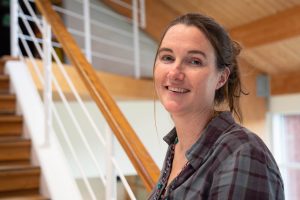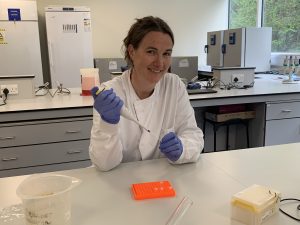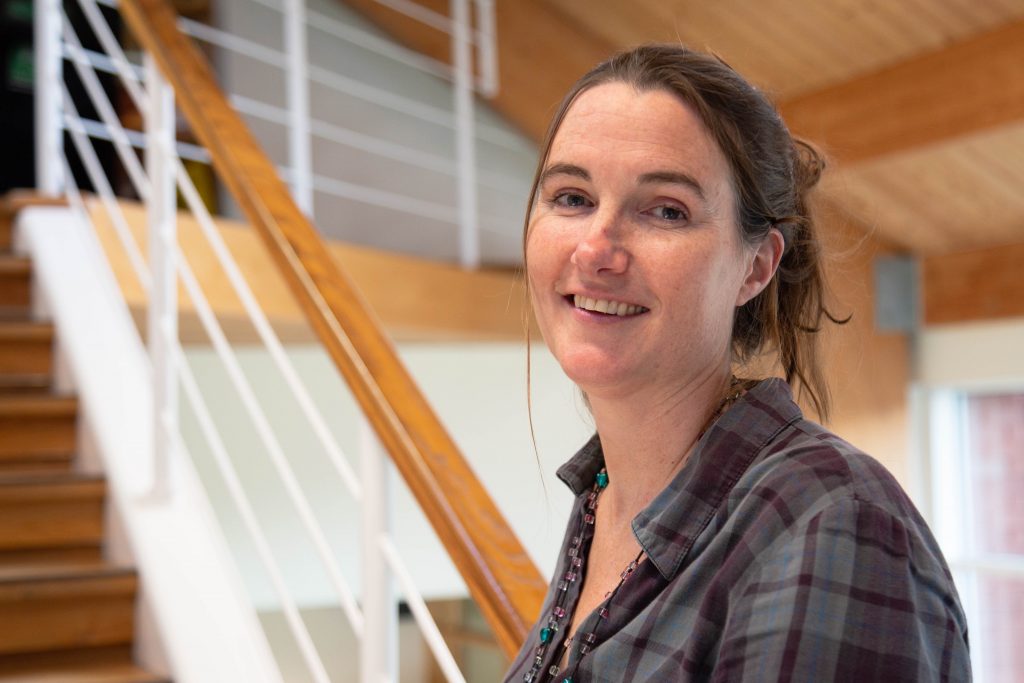
Dr. Emma Hayhurst is Senior Lecturer in Molecular Biology at the School of Applied Sciences, University of South Wales.
Tell us a bit about your career in science and how you came to focus on your specialism.
More by luck than judgement! Before uni I had no real idea of what I wanted to do – my main aim was to work as a white-water raft guide. I started a Zoology degree because I loved animals but quickly realised there was too much emphasis on dead things, and instead was inspired by a great lecturer to change to microbiology. The more I learnt, the more fascinated I became. Microbiology underpins everything – all life on earth – and has the power to change the world. I can’t imagine working in anything else.
aim was to work as a white-water raft guide. I started a Zoology degree because I loved animals but quickly realised there was too much emphasis on dead things, and instead was inspired by a great lecturer to change to microbiology. The more I learnt, the more fascinated I became. Microbiology underpins everything – all life on earth – and has the power to change the world. I can’t imagine working in anything else.
What made you want to become a scientist/academic?
I never had a great drive to be a certain thing, I just knew what I didn’t want to be. I knew the typical graduate jobs and corporate career ladders were not for me. I think my career decisions have been fuelled by a combination of geeky fascination and a desire to make a difference.
Did you have any role models/anyone that inspired you while you were early in your career?
Other than the lecturer who inspired me to do microbiology, there is no stand-out individual. More generally, I have always been inspired by people who are driven to make a difference and who manage to put that above their own personal ego. I volunteered for a few months at a clinic in Ghana and the doctor who ran that was a pure example of this – everything he did came from a desire to help his fellow humans.
How would you describe your experience as a woman scientist?

Early on in my career I don’t think I really felt defined by gender. As I got older, I found it frustrating to see so many of my talented female colleagues leave the profession because they couldn’t make the long hours and short-term contracts work for them. Personally, once I became a mother I found that I lost confidence in my research and re-gaining that has been an uphill struggle. I have always brought my whole self to work which I think is quite a feminine trait – I am quite an emotional scientist! I used to feel uncomfortable with that and see it almost as a weakness but the older I get the more I’m sure that you can only be yourself – and so I’m much more comfortable being just who I am in work.
Which barriers would you say exist to you as a woman scientist and how can we overcome them?
I think there is still a large expectation that to achieve your potential you should work in a traditional way: long hours, proudly don’t take your holidays, work full time. What we need to move to is recognising that:
a) that will put a lot of people off, especially women, who don’t want to make that choice and
b) it is not necessarily the best way of working.
I think it’s time to celebrate quality over quantity and ensure equality of opportunity to all scientists, even those who choose to work part time. Working flexibly and part time allows us all to be more fully human and I think that our science is all the better for it. I’m an advocate for the two-to-four day week – for everyone!
Is there anything you do in your day-to-day work to support fellow women scientists?
Probably not enough. I’ve done lots over the years – from girls-only school events to local festivals to raising the profile of women in science by standing on a soapbox in Swansea high street talking about my work, but I would love to do more – not just to support fellow women scientists but scientists, innovators and people who have the potential to change the world from all backgrounds and all walks of life.
Why is it important to empower women in science?
Ultimately, the biggest driver for encouraging diversity in STEM should be about the benefit that it brings to the workforce and the world, rather than the other way round. We should encourage diversity because our workforce is impoverished without it. We are facing perhaps more challenges than ever before in our history. We cannot solve these problems by thinking about them in the same way we always have, and in the same way that everyone else does. To really move forward requires the diversity of ideas and thoughts that comes from having a workforce with a rich variety of different backgrounds. We need all young people to recognise the challenges we face and to want to work towards trying to overcome them.




